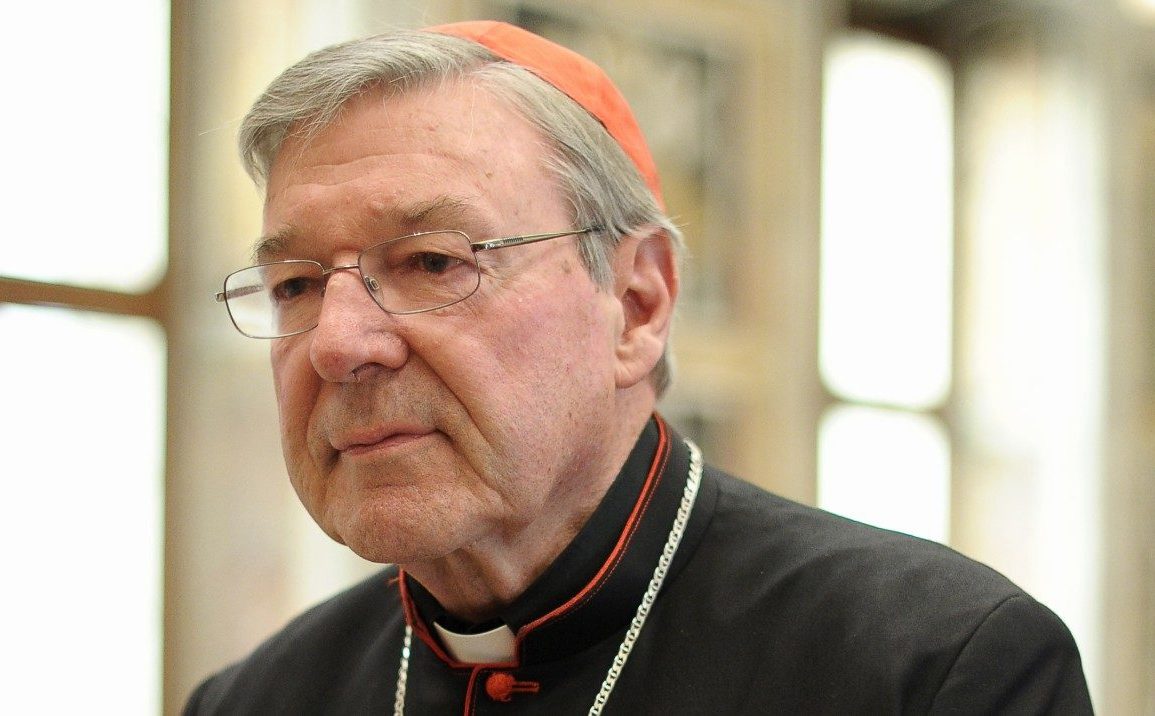The relationship between the Church and the media is something Cardinal George Pell ponders often.
Cardinal Pell is, after all, the highest-ranking Catholic leader to be convicted of the abuse of minors — and the highest-ranking Catholic leader to have his conviction overturned. He endured several years (including one in jail) of trials and constant, brutal media attacks, all for a crime that Australia’s highest court and the Vatican’s tribunal determined did not occur.
No one would be surprised if Cardinal Pell had a rather cynical view of the media and wanted to “do something about it.” But in an interview yesterday during a Vatican webinar for English-speaking journalists around the world, Cardinal Pell clearly voiced his support for freedom of the press.
When asked if journalists who distort or even fabricate information should somehow be disciplined or censored, the Cardinal defended the rights of the press. He said he was loathe to restrict the offenders while encouraging the media to adhere to high standards.
The press does a good joy telling about the charitable works of the Church, about its work with the poor, according to the Cardinal. But he suggested that many journalists have a “relentless hostility” toward the Church and there is among many a lack of knowledge of God or the transcendent. Some don’t want to cover the Church because they “don’t do God.”
He suggested that social media have contributed to the coarseness of the public dialogue, even within the Church between liberal and conservative factions. Violence on the internet is a problem and society will have to do something about it. He noted that people with traditional values are brutally attacked on social media.
He urged more civil discourse but reminded those listening that the Church cannot compromise on the hierarchy, hinting that it is important to fight the really important fights: “The divinity of Christ is a more important issue than whether angels have two wings or four wings.”
When asked about his time of more than a year of solitary jail confinement, the Cardinal pointed (with humor) to some of the positives: the bed was long enough for his long frame, the shower had hot water, there was a television, and his cell had a tea kettle. That was more, he admitted than was furnished on many spiritual retreats he has attended.
Most important, although he couldn’t celebrate Mass he was allowed to keep his breviary. Obviously, there was plenty of time for prayer and reflection, but he also described some of the doubts common to all humanity: “I wasn’t always confident of vindication in the courts. I know I should have been, logically.”
In the wide-ranging interview, he reflected on two of the big questions facing the Church today.
First, does the Church have its finances in order? His answer was a bit of a good news/bad news story. The good news, he said, is that the corruption issue has been significantly addressed. The bad news is that the Church still seems reluctant to spend less than it takes in, which can be troublesome in the long run.
Second, is it true that the Cardinal is a climate-change denier. Not true, he said emphatically. But he went on to explain that while he believes there is climate change he doubts there is much of anything we humans can do about it. He noted that at the time of Christ, the earth was warmer and in the Middle Ages it was cooler. He suggested these are natural cycles and said none of the computer predictions about future temperatures have been accurate.
If no other message came through in the discussion, it was obvious that Cardinal Pell is positive about the Catholic Church and hopeful for the future despite the many challenges facing society. He said that is because of what the Church has for the world:
“We have the answers to the sufferings of the secular society — and sufferings there are.”
About Cardinal George Pell
Australian Cardinal George Pell was offered a professional football contract in his youth but decided to study for the priesthood instead. He was ordained in 1966. In 1987 he was made a bishop, and then in 2001, Archbishop of Sydney. He was made a cardinal in 2003 by Pope John Paul II and participated in the conclaves that elected Pope Benedict XVI and Pope Francis. In 2014 Pope Francis appointed him prefect of the Secretariat for the Economy in the Vatican. In 2018, he chose to return to Australia to face charges of historical child sexual assault, defending his innocence. After a secret trial from which the press was excluded, he was convicted of a crime he did not commit. This conviction was overturned after he had served 13 months in solitary confinement. In his recently published book Prison Journal, Volume 1, the cardinal speaks of his time in prison as a time of retreat and prayer, freely forgiving the injustice done him.
Immediately following Pell’s initial conviction for sexual abuse in February 2019, the Holy See’s Congregation for the Doctrine of the Faith (CDF) initiated its own investigation of the charges against him, but the Vatican also said the CDF would await a “definitive judgment” from the Australian courts in the case. The Pope reaffirmed at that time that Pell was “forbidden to exercise public ministry and … from having contact in any way or form with minors”, restrictions that had been in place since Pell’s return to Australia in July 2017. When Pell’s conviction was upheld in August 2019, the Vatican again said its review would wait for Pell to exhaust his appeals. When Pell’s convictions were quashed in April 2020, a Vatican spokesperson said that ruling would contribute to the CDF’s investigation which would “draw its conclusions on the basis of the norms of canon law”.










